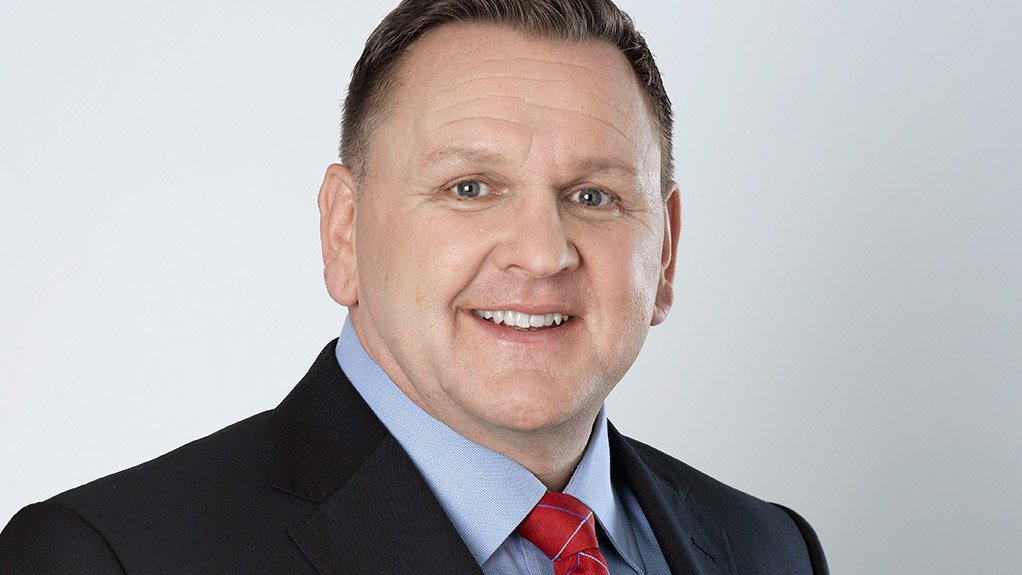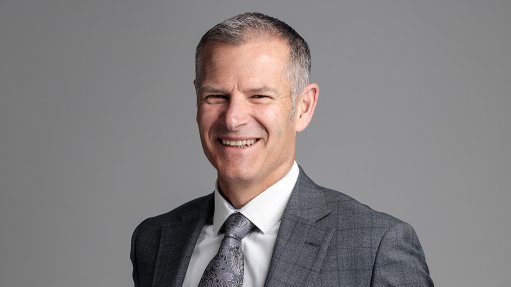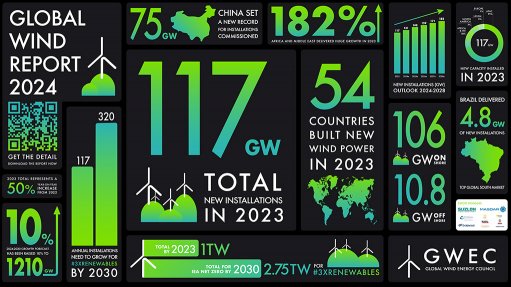Logistics growth in Africa positive, despite challenges


CHARLES BREWER Africa’s macroeconomic data is positive and provides a good tailwind for growth
There will be accelerated growth in the next two years in Africa’s logistics market, largely driven by increased consumer demand and the rapidly developing e-commerce industry.
This is according to logistics and express services provider DHL Express sub-Saharan Africa (SSA) MD Charles Brewer, who tells Engineering News that Africa’s macroeconomic data is positive, despite certain challenges, and it provides a good tailwind for growth, regardless of whether it pertains to middle-class growth, fastest-growing economies or consumer spending.
His comments also come after the release of Deutsche Post DHL Group’s full-year results in March. The group ended off 2014 with revenues of €56.6-billion, which was up 3.1% on 2013.
He says the company’s increased focus on e-commerce and emerging markets, including Africa, led the group to achieving growth in volume and revenue in 2014.
A key focus for DHL Express SSA in 2015 is to further strengthen connectivity on the continent and globally. Brewer notes that this will be crucial to meeting the growing e-commerce market on the continent and assist in driving further growth.
Meanwhile, secondary market research organisation yStats.com indicated in February that, despite Africa lagging behind other regions regarding the development of online infrastructure, business-to-consumer (B2C) sales would grow to billions of euros in the next three years.
“There is a growing B2C e-commerce market in Africa, as a result of the development and accessibility of technology on the continent, so it is no longer only the larger corporations that have to use logistics and delivery services but also individual consumers and small businesses. Our goal is to develop the necessary infrastructure in Africa to make the global market more accessible,” he says.
Brewer notes that one of the challenges that might impact on Africa’s growth are the various elections that will take place on the continent this year.
This, he says, generally tends to create some political turmoil and subdued import and export activity.
For example, Nigeria’s recent elections were a success and a good example of how Africa is improving from a democratic perspective, he says.
“There are also some countries growing healthily. The International Monetary Fund is forecasting positive growth of 4.9%, but some countries are slowing, including South Africa. Given that South Africa is so important to the region and to DHL, it is a worrying trend,” says Brewer.
Also, some countries face challenges that include the strong US dollar, which affects importing. There are also social factors, such as Ebola, which continues to affect Sierra Leone, Liberia and Guinea.
There are huge infrastructure deficits regarding roads, rail, ports, airport, customs and borders, which make moving goods a challenge.
Brewer also cites political tension and terrorism in Africa as further challenges, but adds DHL is positive that Africa will move forward.
Key countries in which DHL expects to have accelerated growth are Nigeria, Côte d’Ivoire, Ghana, Kenya, Tanzania and Ethiopia.
Uganda and Rwanda are also showing positive trends; however, Mozambique’s growth has slowed down, owing to oil and mining deceleration.
“The reality of Africa today is that just below 20% of gross domestic product is derived from manufacturing. “So what we have is lots of small and medium-sized enterprises (SMEs) doing business successfully in their markets. Generally speaking, the biggest challenge in Africa is unemployment. The more we can help SMEs connect with the rest of the world, the more sustainable the countries’ economies will be,” says Brewer.
He adds that in about three to four months DHL will be launching a free training programme called Certified International Specialist SME for SMEs across Africa to communicate with one another about which markets to target, how to market their products and how to package it, for example.
DHL’s intent, he adds, is to make economies and SMEs stronger and, fundamentally, to create more jobs.
DHL also hopes to connect SMEs to the rest of the world by creating 6 000 access points for customers across Africa by the end of the year.
Currently, the group has 3 800 access points in 52 countries, compared with the 300 it had three years ago.
Intra-Africa Trade
Brewer believes that, while intra-Africa trade is low, compared with intercontinental trade elsewhere, it will continue to grow this year.
At least 60% of what is produced in Europe is sold and used in Europe. In North America, inter-continental trade is between 40% and 50%, and 70% in the Asia Pacific.
Currently, only 20% of what is produced in Africa is used in Africa, Brewer says, but adds that this figure has not only increased from 10% in the past five to ten years but is also accelerating by 37% year-on-year. Subsequently, this creates more local buying and manufacturing and, then, more jobs.
He also highlights statistics published by the International Data Corporation, which predicts that there will be more intra-Africa trade in 2015, promoted by information and communication technology initiatives such as payment systems, financial inclusion initiatives and cross-border payments.
DHL, he stresses, will continue its aggressive investment and expansion strategy on the continent, with several planned upgrades scheduled for 2015, including state-of-the-art smartphone scanners to further enhance its tracking capabilities.
“We firmly believe that Africa is the place to be and that it offers unlimited growth opportunities. We aim to drive this growth through strategic investments and programmes that will make the global market more accessible. “We are committed to connecting Africa to the world, and the world to Africa,” concludes Brewer.
Comments
Press Office
Announcements
What's On
Subscribe to improve your user experience...
Option 1 (equivalent of R125 a month):
Receive a weekly copy of Creamer Media's Engineering News & Mining Weekly magazine
(print copy for those in South Africa and e-magazine for those outside of South Africa)
Receive daily email newsletters
Access to full search results
Access archive of magazine back copies
Access to Projects in Progress
Access to ONE Research Report of your choice in PDF format
Option 2 (equivalent of R375 a month):
All benefits from Option 1
PLUS
Access to Creamer Media's Research Channel Africa for ALL Research Reports, in PDF format, on various industrial and mining sectors
including Electricity; Water; Energy Transition; Hydrogen; Roads, Rail and Ports; Coal; Gold; Platinum; Battery Metals; etc.
Already a subscriber?
Forgotten your password?
Receive weekly copy of Creamer Media's Engineering News & Mining Weekly magazine (print copy for those in South Africa and e-magazine for those outside of South Africa)
➕
Recieve daily email newsletters
➕
Access to full search results
➕
Access archive of magazine back copies
➕
Access to Projects in Progress
➕
Access to ONE Research Report of your choice in PDF format
RESEARCH CHANNEL AFRICA
R4500 (equivalent of R375 a month)
SUBSCRIBEAll benefits from Option 1
➕
Access to Creamer Media's Research Channel Africa for ALL Research Reports on various industrial and mining sectors, in PDF format, including on:
Electricity
➕
Water
➕
Energy Transition
➕
Hydrogen
➕
Roads, Rail and Ports
➕
Coal
➕
Gold
➕
Platinum
➕
Battery Metals
➕
etc.
Receive all benefits from Option 1 or Option 2 delivered to numerous people at your company
➕
Multiple User names and Passwords for simultaneous log-ins
➕
Intranet integration access to all in your organisation



















